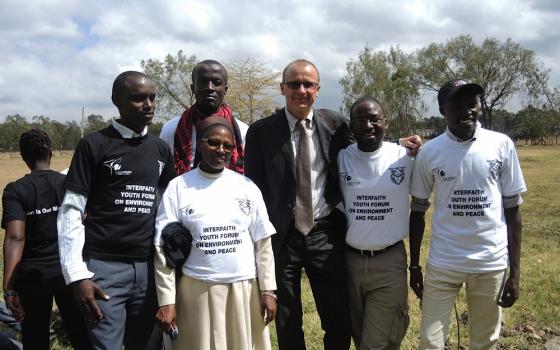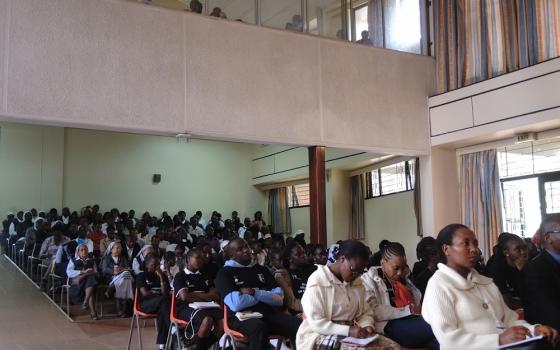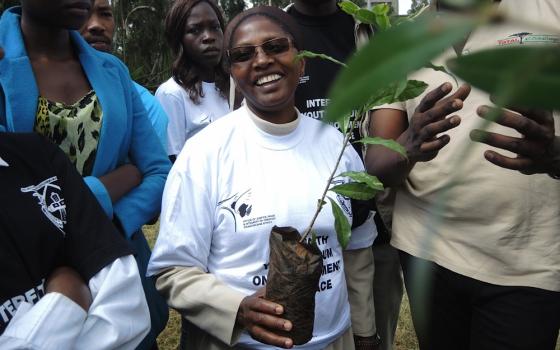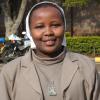Sr. Mary Francis Wangare is worried about the young people in Kenya. The Franciscan sister knows that, in Kenya, young people are most at risk of religious radicalization. To combat the threat of radicalization, she wants to create better relationships between the Christians and Muslims. One way to unite these two different groups is to promote the environment, because not only is the environment a neutral topic, a healthy environment can even foster peace.
The Quran has 600 references to the environment, which are similar to what Pope Francis emphasized in his encyclical Laudato Si'. The pope's work talks about "the care for our common home," because the environment doesn't recognize religion. Both Muslims and Christians suffer when there are problems with the environment.
Wangare knows the price of radicalization personally. She lost her 20-year-old niece in the Garissa University attack, when extremist Muslims associated with terror groups killed 147 students and injured 79 in the attack on April 2, 2015. Partly in response to this terror attack, the Justice, Peace and Integrity of Creation Franciscan Africa, where Wangare is director, joined together with other faith and environmental groups to create an interfaith forum for the environment on Oct. 9 in Nairobi, Kenya. Global Sisters Report interviewed Wangare about that experience.
GSR: Can you tell me a little bit about the purpose of the Interfaith Youth Forum for Peace and Environment?
Wangare: The purpose of this event is to bring together the young people of different faiths on the issues of peace and environment. Extremist leaders are recruiting young people to carry out attacks in this country. So we want to take those young people and bring them together to bridge the gap and tension between Christians and Muslims before they fall victim to extremism. We are telling the young people not to be afraid of people of different faiths, that they can live together despite the different beliefs. We have the same God who has created us. We are utilizing the environment as a focal point to help us access young people. We cannot just bring them together and expect something to happen. When you give them a common goal, they can work together.
This is the second annual forum after you started this conference last year. Do you think the second forum took more importance because of the Garissa attack?
Yes, this forum was even more important because we saw in the Garissa attack that the terrorists were young people. We started this forum because we were concerned about the problem of radicalization of young people in Kenya. I visited Garissa, and there is fear among the young people, there is real tension between Christians and Muslims. The Christians there told me, 'Sister, thank you for having courage to come and visit us; we feel neglected and threatened.' They also told me that they live together with Muslims and do business with Muslims, but then some [extremist] Muslims come and kill their children and terrorize them.
Tell me about your niece who was killed in the attack.
My niece, Jane Nyambura, was 20 years old. She was in her second semester in the college. During the attack they were told that 'Muslims do not kill women, so surrender yourself, we are not going to kill you.' Then when she came out she was sprayed with bullets.
After the attack, I was in Chiromo mortuary [in Nairobi] for one week. I went through 142 bodies looking for the body of my niece. It was very hard to recognize her body; it was a real torture. I kept asking myself, what evil did these children do to be subjected to such pain?
How did this experience affect you?
What I saw in the mortuary moved me to travel to Garissa after burying my niece. I saw the hatred boiling like fire from the Christians against the Muslims. There was no way you could tell a Christian that not all Muslims are bad. I remember Muslims came to give food in the Chiromo mortuary, and one woman slapped a Muslim girl [who was serving]. I went to her and said, 'Mum, I understand how you feel, but don't slap her.' I had to tell the Red Cross people not to allow those who are dressed like Muslims to distribute food in order to avoid a lot of problems. This experience made me realize how important this forum is to bring together young people regardless of their religion.
Young people must keep their feet on the ground. They are our flowers, the future of this country.
[Michelle Njeri is a sister of the Franciscan Sisters of the Immaculate Conception, Nairobi, Kenya, and a final year student in Social Communication at Tangaza University College (Catholic University of Eastern Africa).]



